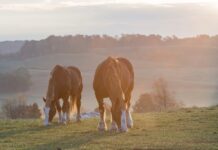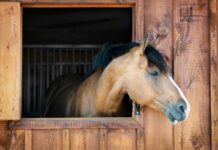Even a small amount of the drug can be fatal.
Up to 70 horses are reported to have died on a ranch in Oklahoma, USA, after eating contaminated feed.
Tests revealed the presence of monensin in the ration. Even a small amount of the drug used to kill bacterial and parasitic infections in cattle can be fatal to horses.
“The [contamination] likely occurred due to a combination of a failed cleanout procedure and a sensor malfunction,” said manufacturer Livestock Nutrition Center which supplied the feed to Beutler & Son Rodeo Company.
The Oklahoma Department of Agriculture, Food and Forestry is investigating.
Elk City based Beutler and Son is a long-standing producer of rodeo horses. According to some reports, around 140 of its horses were affected, of which as many as 70 have died.
Why it shouldn’t happen here
In 2020, Defra responded to scare stories that drugs like monensin, which are legal in America but banned in Britain, would be permitted for use in the UK post-Brexit.
“There is no change to the UK ban on using veterinary medicines, such as monensin, for the growth promotion of animals,” said a Defra spokesperson at the time.
“We are absolutely committed to maintaining the stringent controls on the medicines that can be used for all animals, including food-producing ones, following the end of the [Brexit] Transition Period.”
UK horse owners can take further reassurance by using feeds carrying the NOPS logo.
The scheme was primarily developed to reduce the risk of naturally occurring prohibited substances appearing in feeds, but as Claire Williams of the British Equestrian Trade Association (BETA) explained, NOPS assurance offers other safeguards.
“[Cases like this] exemplify the benefit of companies certifying to NOPS as it is short-hand for knowing medicines won't be in feed at all. All NOPS accredited feeds have to be made in mills in which no medicines are permitted.”
In America, vets involved with the Oklahoma horse deaths have reminded consumers about the importance of reading labels on feed products.
There’s also been advice to avoid feeding horses with products that are not made and marketed for equines.
.

















